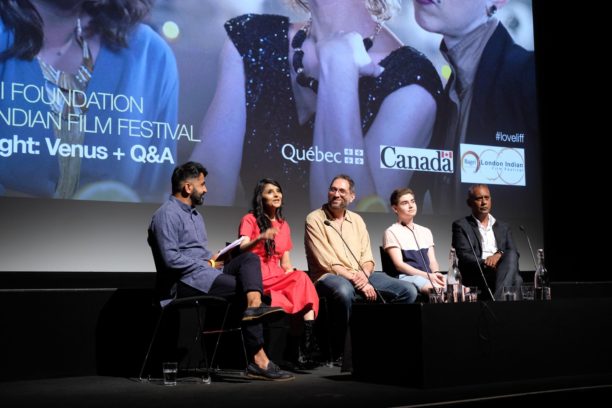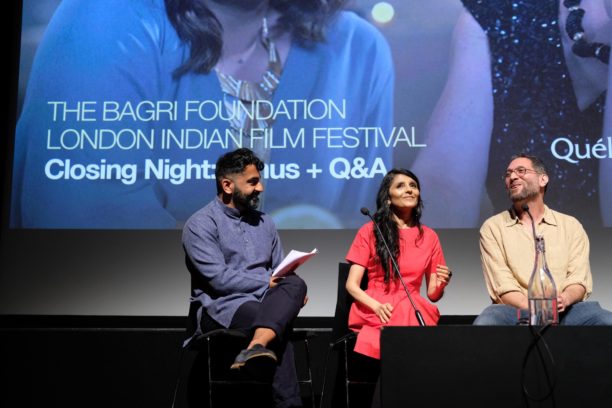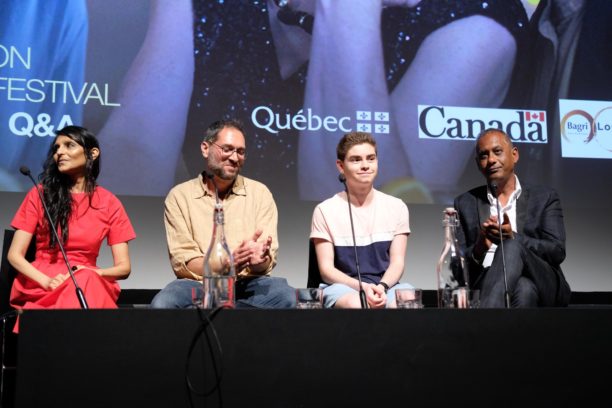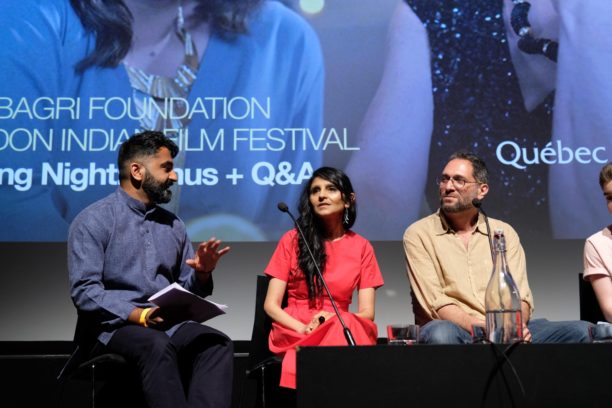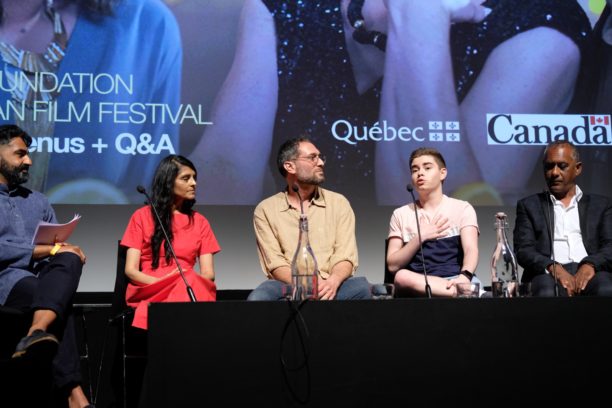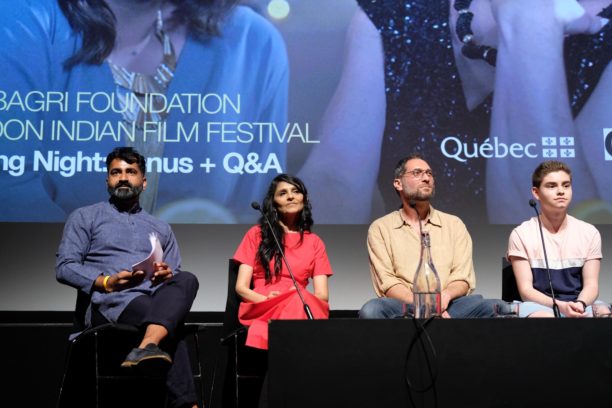 The closing movie of the London Indian Film Festival (LIFF) was Venus, the life-affirming story of a transitioning woman, named Sid, who suddenly discovers that she’s the father of a 14-year-old son from a previous relationship. We were fortunate enough to have Eisha Marjara (the director), Joe Balass (the producer), Jamie Mayers (who plays Ralph, the son), and Gordon Warnecke (who plays Papaji, Ralph’s grandfather) in attendance after the screening to share insights into how the film was put together.
The closing movie of the London Indian Film Festival (LIFF) was Venus, the life-affirming story of a transitioning woman, named Sid, who suddenly discovers that she’s the father of a 14-year-old son from a previous relationship. We were fortunate enough to have Eisha Marjara (the director), Joe Balass (the producer), Jamie Mayers (who plays Ralph, the son), and Gordon Warnecke (who plays Papaji, Ralph’s grandfather) in attendance after the screening to share insights into how the film was put together.
“I was obsessed with the idea of a transgender character finding a son,” explained Marjara. This was inspired by an earlier short film that the director made in 2012 called House for Sale. However, creating the final story for Venus was a long one. “In earlier drafts I showed more about the office and work, showing the challenges that she goes through there,” said Marjara, “I also showed more about Ralph and his friends, how he gets bullied.”
In the end, Marjara stripped the whole film down to the core and rebuilt it. Often this came down to reasons of budget, even when filming she was still having to cut scenes whilst on the set. The reconstruction process did lead to a change in tone and more screen time for other roles to be developed. “Sid’s parents were only supporting characters but our producer wanted to see more of them,” Marjara revealed. “In fact Sid’s Mother was the easiest thing to write. The parents just wrote themselves and those characters make the film richer and funnier, spreading to the rest of the film.”
Warnecke, famous for his role as Omar in My Beautiful Laundrette, joked, “I tried paying them money to give me more lines but they wouldn’t.” His jollity, however, is matched by his sincere love for the project. “The writing was great. I’m truly honoured to be part of Venus, thank you,” he told the director and producer. It turns out that Balass had Warnecke in mind to play Papaji having seen him play Omar, because he’d totally identified with that character, although this time Warnecke’s character is of a untypical Punjabi Father – one who’s quite laid back, refusing to rule with an iron fist, and letting his wife take pride of place in the family. Despite this, he gets to show great understanding, sympathy, and love for Sid.
Acceptance is a clear theme running throughout the film. Papaji and, eventually, Mamaji come to terms with Sid and her decision to transition, but perhaps it’s Ralph who’s the strongest embodiment of it. When Ralph first visits Sid, he appears to run off, but actually he takes the whole thing in his stride and even thinks having a transgender Dad is “cool”. Mayers elaborated about Ralph’s accepting nature, “I kept it quite simple because Ralph is quite simple. He either loves someone or he doesn’t. It’s unconditional for him.”
The movie itself also seemed to be accepted. “We filmed in Montreal. It’s a progressive city and we got a lot of support,” said Marjara. It seems that the younger generation are less phased by coming out, in whatever way that might be. Mayers said that his friends were just excited that he was in a movie, and not concerned that there was a transgender character in it. He goes on to give a great analogy, “if you go around someone’s house, see their dog and say ‘isn’t he beautiful’ only for them to say ‘it’s a she’ then you just get it.” It makes you wonder why we make things so much harder when it concerns people.
Finding a lead for the movie was also a challenge. “Ultimately”, explained Marjara, “it was quite a tight definition”. They were looking for a South Asian, around 35 years old, pre-transition, second generation North American, although they looked in Canada and the UK as well. it was an elaborate casting process and they determinedly looked for a trans actor, partly due to the criticism that would undoubtedly be levelled at them, but ultimately Debargo Sanyal won the role on the strength of his audition tape.
So what does the future hold for Venus? “We are working on a TV series based on Venus,” said the producer, “we are reaching out to Amazon and others. We’re looking for funding. So if you like the movie then get onto IMDB and let the world know. It will help us enormously.” Marjara would like to see the movie appearing in more mainstream festivals, to get better exposure. However, in this new world of Netflix and Amazon maybe there is a chance for distribution that wasn’t there before, content providers who are willing to push the envelope to gain new subscribers. Hopefully, this is just the beginning of a legacy for Venus which will help educate mainstream audiences about trans issues in an accessible way.

